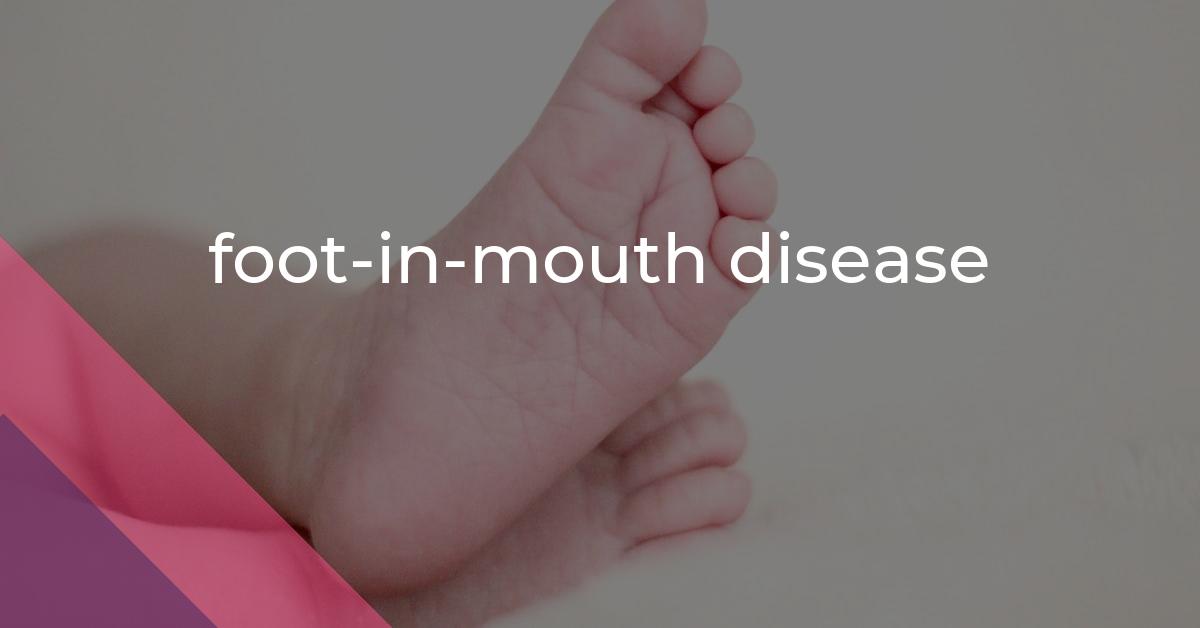foot-in-mouth disease: Idiom Meaning and Origin
What does ‘foot-in-mouth disease’ mean?
The idiom "foot-in-mouth disease" refers to a situation where someone says something embarrassing or inappropriate without intending to. It implies a lack of tact or social awareness when speaking, often leading to awkward or uncomfortable situations.

Idiom Explorer
The idiom "in the wrong place at the wrong time" means being in a situation where something bad happens due to unfortunate timing or circumstances.
The idiom "honey-mouthed" refers to someone who speaks in a sweet or flattering manner, often insincerely or with the intention of manipulating others.
The idiom "go down the wrong way" means to do or say something that is inappropriate, offensive or causes discomfort to others.
The idiom "flap one's gums" means to talk incessantly or to speak aimlessly without saying anything of substance. It implies that the person is talking too much without making any meaningful contribution to the conversation. This idiom is often used in a negative or dismissive manner, suggesting that the person is wasting time or just indulging in empty chatter.
The idiom "fish out of water" refers to a person who feels uncomfortable or out of place in a particular situation or environment.
The idiom "find one's tongue" means to finally be able to speak or express oneself after being initially speechless or hesitant.
"Feet of clay" is an idiom that means to have a hidden flaw or weakness, despite appearing strong or admirable on the surface.
The idiom "fat lip" refers to a swollen or bruised lip, usually caused by a physical injury or a fight. It is used figuratively to describe a situation where someone is metaphorically silenced or embarrassed by someone else's words or actions.
The idiom "fall on one's face" means to fail or make a mistake in a very obvious or embarrassing way.
The idiom "diplomatic flu" refers to a situation where a diplomat or government official pretends to be ill in order to avoid attending a meeting, event, or situation that they find uncomfortable or undesirable.
Deciphering Verbal Blunders
The idiom "foot-in-mouth disease" is a term used to describe the situation where someone says or does something foolish or embarrassing without intending to. It's a common phrase that highlights instances where a person speaks without thinking or says something inappropriate or offensive in a conversation. The exact origin of this idiom is not well-documented, but its usage has been prevalent since at least the mid-20th century.
An interesting theory suggests that the idiom may have derived from the medical condition known as "hand, foot, and mouth disease." This contagious viral illness primarily affects infants and children, causing sores in the mouth and rashes on the hands and feet. By using "foot-in-mouth disease" as a metaphor, it implies that speaking without thinking can be as harmful and contagious as a physical illness.
Another theory proposes that the idiom has its roots in the phrase "putting one's foot in one's mouth," which goes back to the 18th century. The expression refers to a person saying something embarrassing or inappropriate, as if they had mistakenly put their foot into their own mouth. The addition of "disease" to this phrase accentuates the repetitive nature of the behavior, suggesting that the person is prone to repeatedly making such mistakes.
The idiom "foot-in-mouth disease" is commonly used in informal settings, such as social gatherings or casual conversations, to describe individuals who frequently make embarrassing or thoughtless remarks. It serves to underscore a person's lack of tact or sensitivity in their interactions with others. Additionally, it can be used humorously to acknowledge one's own tendency to speak before thinking.
This idiom has gained even more significance in the age of social media. With the power of the internet, careless or thoughtless posts or comments can quickly spread and have far-reaching consequences. "Foot-in-mouth disease" stands as a reminder of the importance of thoughtful communication and the potential pitfalls of speaking impulsively without considering the impact of one's words.
Now let's explore how "foot-in-mouth disease" is related to some other idioms: "diarrhea of the mouth," "big mouth," "go down the wrong way," "bite one's tongue," and "cat got someone's tongue."
The idiom "diarrhea of the mouth" is synonymous with "foot-in-mouth disease." Both idioms refer to a person who speaks too much or too candidly, often without considering the consequences. While "foot-in-mouth disease" focuses on the unintentional foolishness or embarrassment caused by such remarks, "diarrhea of the mouth" additionally emphasizes the excessive and uncontrollable nature of the speech.
On the other hand, the idiom "big mouth" refers to a person who has a tendency to reveal secrets or share confidential information without intending to. Unlike "foot-in-mouth disease," which primarily focuses on inappropriate or embarrassing remarks, "big mouth" centers around the divulging of information that is meant to be kept secret. However, both idioms highlight the unintentional nature of the actions.
The idiom "go down the wrong way" is related to "foot-in-mouth disease" in terms of unintentionally saying something inappropriate or offensive. While "foot-in-mouth disease" describes a person's tendency to speak without thinking, "go down the wrong way" captures the negative reception or backlash that can result from such remarks. It suggests that the words spoken by the individual have affected someone negatively or have been misunderstood.
When it comes to "bite one's tongue," the idiom is akin to "foot-in-mouth disease" in the sense that both express the act of refraining from speaking, particularly when it is difficult or requires self-control. However, "foot-in-mouth disease" generally focuses on instances where someone fails to bite their tongue and says something foolish or embarrassing, whereas "bite one's tongue" emphasizes a conscious effort to hold back from speaking in order to avoid conflict, offence, or misunderstanding.
The final idiom, "cat got someone's tongue," is somewhat different from "foot-in-mouth disease" but still related. "Cat got someone's tongue" is typically used when a person is temporarily speechless or unable to speak due to nervousness, shyness, or surprise. Although it differs from the unintentional foolishness or embarrassment associated with "foot-in-mouth disease," both idioms demonstrate the impact that words or the lack thereof can have in social interactions.
It is interesting to observe how idioms like "foot-in-mouth disease" and its related expressions reflect the cultural and social contexts in which they arise. They serve as linguistic snapshots that capture certain aspects of human behavior and communication. The usage and popularity of idioms may change over time, reflecting shifts in societal norms and values.
Example usage
Examples of how the idiom "foot-in-mouth disease" can be used in a sentence:
- She suffers from foot-in-mouth disease and always says the wrong thing at the worst possible time.
- John has a bad case of foot-in-mouth disease - he constantly offends people with his thoughtless remarks.
- After realizing his mistake, he apologized for his foot-in-mouth comment that caused offense to his colleague.
More "Medical" idioms



